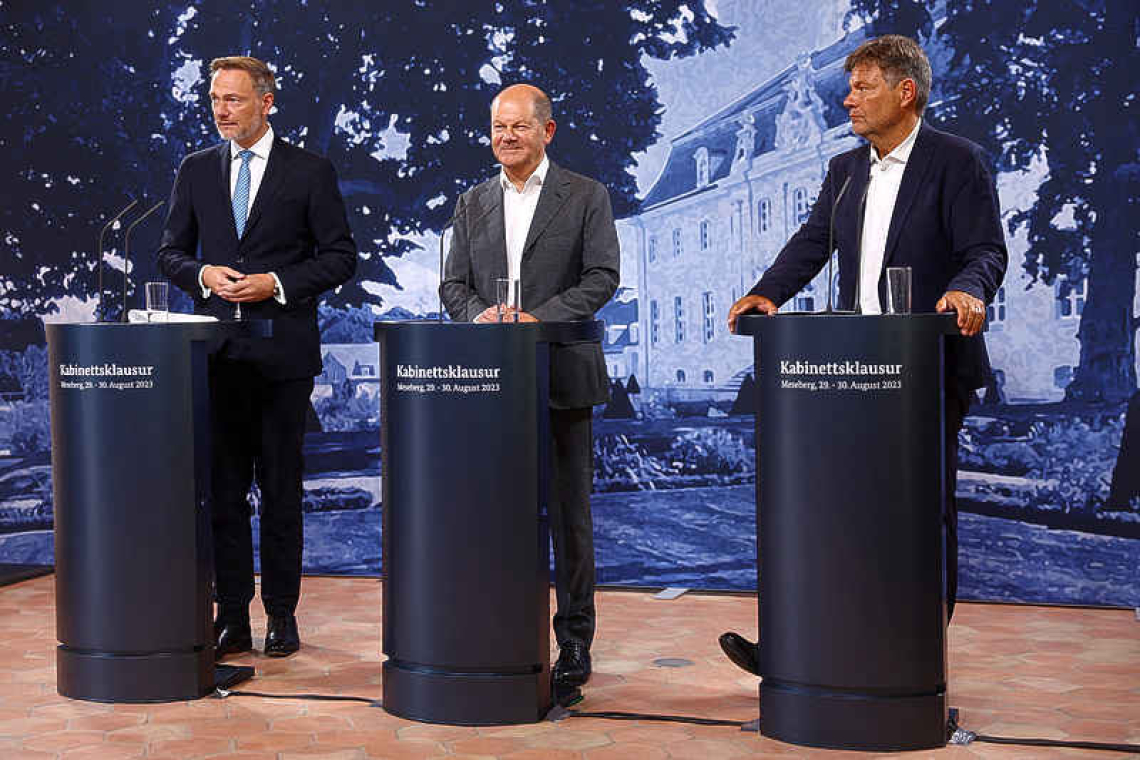MESEBERG, Germany--Germany's coalition on Tuesday set aside weeks of squabbling to agree to a total of 32 billion euros ($34.63 billion) in corporate tax cuts over four years to boost the flagging economy.
A previous attempt to pass the "Growth Opportunities Law" earlier this month failed in what was widely seen as a sign the governing coalition of two socially-minded leftist parties and one economically liberal party was too unwieldy to govern. "We'll discuss how to achieve a big boost," Chancellor Olaf Scholz said at the start of a two-day cabinet retreat at Schloss Meseberg, a baroque castle outside Berlin. "The German economy can do more." The German economy stagnated in the second quarter, showing no sign of recovery from a winter recession and cementing its position as one of the world's weakest major economies. According to the draft seen by Reuters, in its first year the stimulus package, modest in the context of a $4 trillion economy, will cause a tax revenue shortfall of 2.6 billion euros for the federal government, 2.5 billion euros for the states and 1.9 billion euros for the municipalities. The law was championed by liberal Finance Minister Christian Lindner, but then stymied when Greens Family Minister Lisa Paus sought 12 billion euros for child support. An agreement was reached on Tuesday when the two sides agreed to cut the planned Child Basic Insurance to just over two billion euros. Lindner dismissed calls for the government to spend to help the economy grow again, saying spending would stoke inflation and corporate tax cuts would have a bigger impact.
Public dissatisfaction with the performance of the coalition is mounting. A poll by Forsa published on Tuesday found 61% of respondents were so annoyed by coalition squabbling that they no longer paid attention to policy. The poll also found 63% thought Scholz was a weak leader, up from 51% in April. A government source, asking not to be named, said it was no longer acceptable to focus political discussion on subsidies. A government document seen by Reuters showed subsidies are set to almost double to 67.1 billion euros next year compared to 2021. Almost two thirds of those subsidies are designed to help finance the green transition to a lower carbon economy. The new law gives incentives to companies to make climate friendly investments, provides tax incentives for research and allows companies to offset more losses against profits from other financial years.







